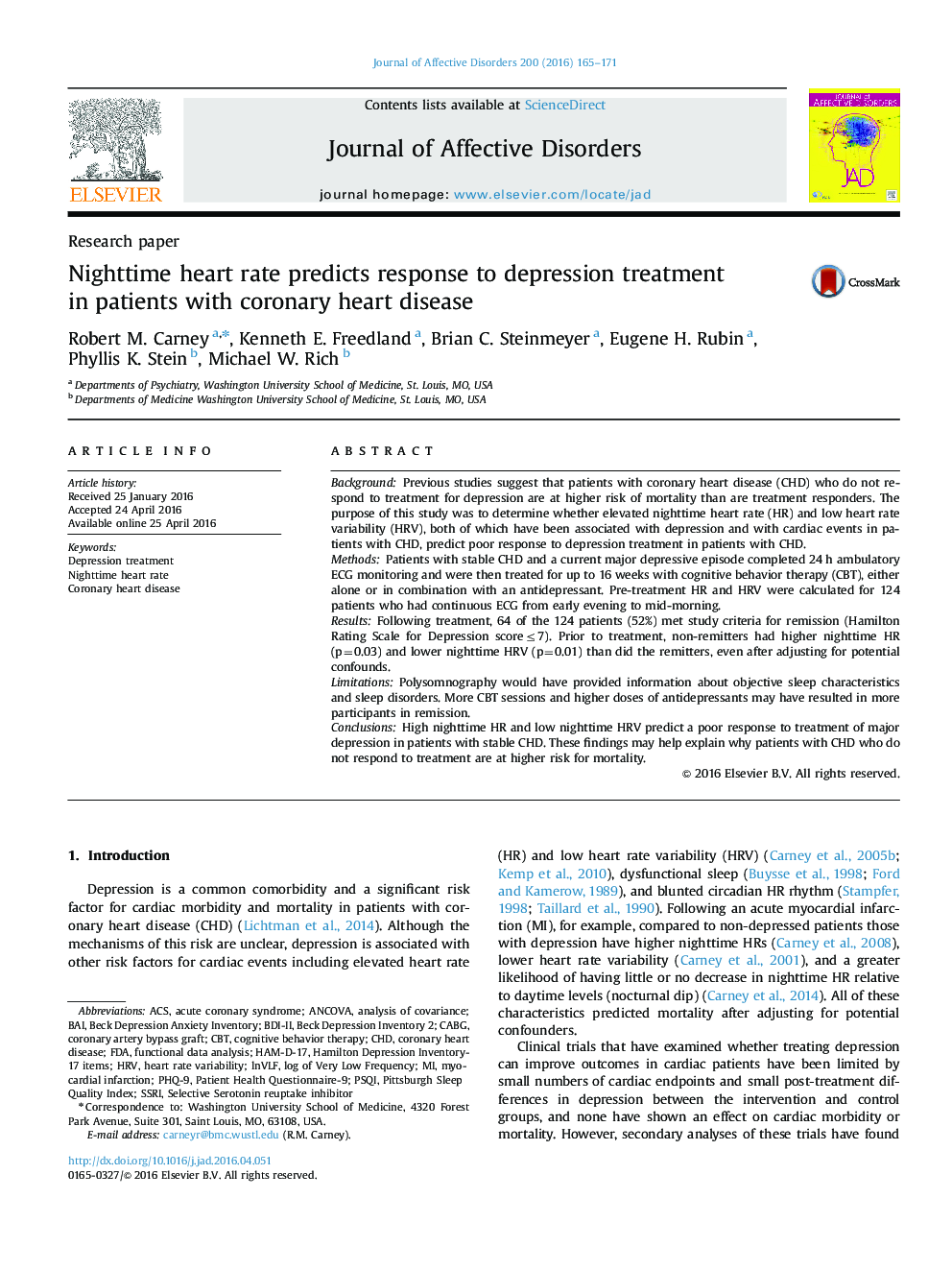| کد مقاله | کد نشریه | سال انتشار | مقاله انگلیسی | نسخه تمام متن |
|---|---|---|---|---|
| 6230089 | 1608125 | 2016 | 7 صفحه PDF | دانلود رایگان |
- Fifty two % of heart patients with major depression remitted with treatment.
- High nighttime heart rate and low heart rate variability predicted remission.
- Insomnia and fatigue were most common residual symptoms in nonremitters.
BackgroundPrevious studies suggest that patients with coronary heart disease (CHD) who do not respond to treatment for depression are at higher risk of mortality than are treatment responders. The purpose of this study was to determine whether elevated nighttime heart rate (HR) and low heart rate variability (HRV), both of which have been associated with depression and with cardiac events in patients with CHD, predict poor response to depression treatment in patients with CHD.MethodsPatients with stable CHD and a current major depressive episode completed 24 h ambulatory ECG monitoring and were then treated for up to 16 weeks with cognitive behavior therapy (CBT), either alone or in combination with an antidepressant. Pre-treatment HR and HRV were calculated for 124 patients who had continuous ECG from early evening to mid-morning.ResultsFollowing treatment, 64 of the 124 patients (52%) met study criteria for remission (Hamilton Rating Scale for Depression scoreâ¤7). Prior to treatment, non-remitters had higher nighttime HR (p=0.03) and lower nighttime HRV (p=0.01) than did the remitters, even after adjusting for potential confounds.LimitationsPolysomnography would have provided information about objective sleep characteristics and sleep disorders. More CBT sessions and higher doses of antidepressants may have resulted in more participants in remission.ConclusionsHigh nighttime HR and low nighttime HRV predict a poor response to treatment of major depression in patients with stable CHD. These findings may help explain why patients with CHD who do not respond to treatment are at higher risk for mortality.
Journal: Journal of Affective Disorders - Volume 200, August 2016, Pages 165-171
